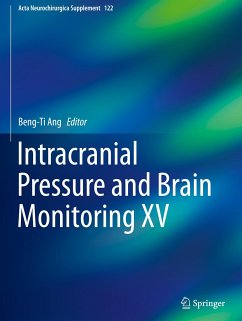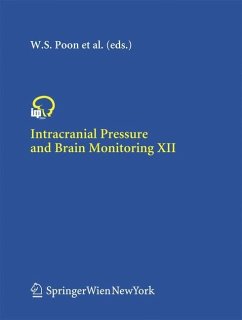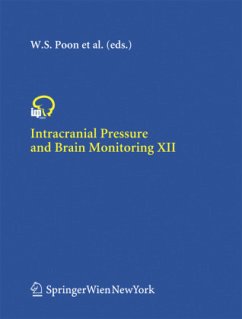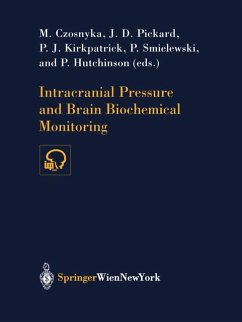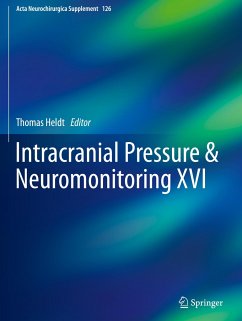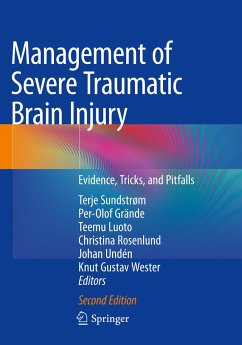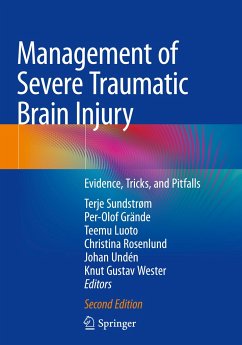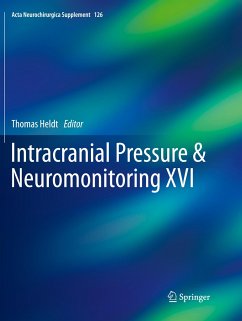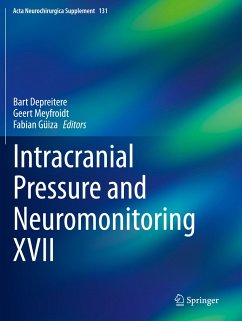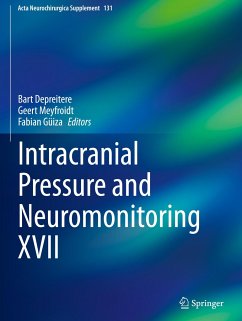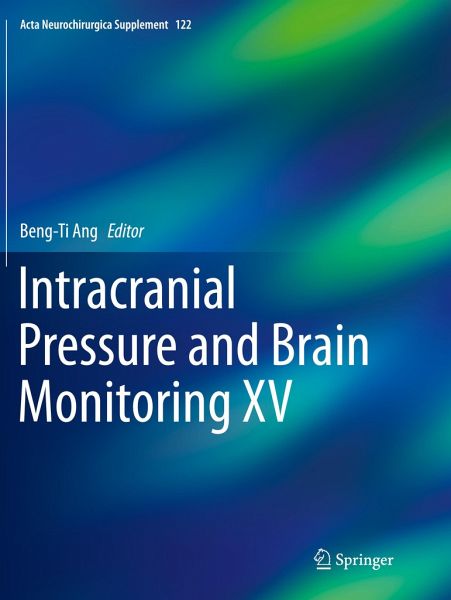
Intracranial Pressure and Brain Monitoring XV
Versandkostenfrei!
Versandfertig in 6-10 Tagen
85,99 €
inkl. MwSt.

PAYBACK Punkte
43 °P sammeln!
This volume showcases recent high-quality work relating to the pathophysiology, biophysics, monitoring, and treatment of traumatic brain injury and hydrocephalus that was presented at the 15th International Symposium on Intracranial Pressure and Brain Monitoring (ICP), held in Singapore in November 2013. The included papers derive from experts in neurointensive care, physiology, physics, engineering, and neurosurgery who have made important contributions in this translational area of research. All were selected from among oral and oral-poster presentations following a rigorous peer-review proc...
This volume showcases recent high-quality work relating to the pathophysiology, biophysics, monitoring, and treatment of traumatic brain injury and hydrocephalus that was presented at the 15th International Symposium on Intracranial Pressure and Brain Monitoring (ICP), held in Singapore in November 2013. The included papers derive from experts in neurointensive care, physiology, physics, engineering, and neurosurgery who have made important contributions in this translational area of research. All were selected from among oral and oral-poster presentations following a rigorous peer-review process involving the ICP Board members, and their focus ranges from the latest research findings and developments to clinical trials and experimental studies. This collection of papers from ICP 2013 continues the proud tradition of publishing key work from the ICP symposia and will be of interest for all who wish to stay abreast of recent advances in the field.



